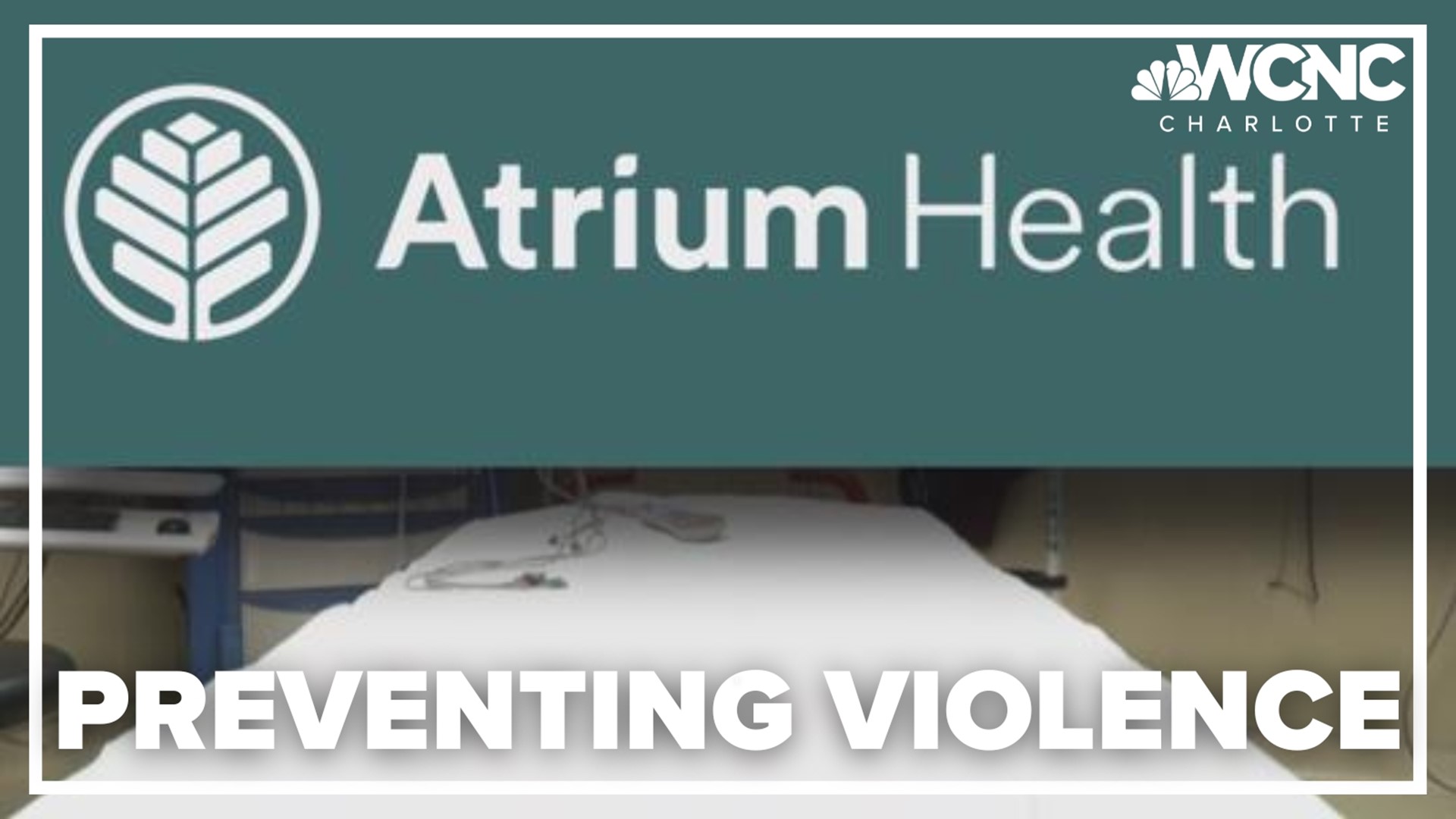CHARLOTTE, N.C. — Atrium Health is seeking solutions to the growing trend that teens and young adults are becoming victims of gun violence in Charlotte.
It's a problem that leaves devastating impacts.
The health care system is trying to make a difference by focusing on fixing the root causes of gun violence, through its Violence Intervention Program. Atrium offers community support and positive alternatives.
“Interpersonal violence is a disease,” said Dr. David Jacobs, Atrium Health's Medical Director for the program.
Dr. Jacobs spends a lot of his time in the emergency department. He's seen the need for a response, that takes aim at the roots of gun violence.
“We’re seeing 12, 13, 14-year-olds now, they've come in as victims of violence,” Dr. Jacobs said.
At the region's only Level 1 trauma center, when shots ring out, the victims often end up at Carolinas Medical Center.
“If we just simply patch them up and send them out, particularly to some of our communities that have been underinvested historically, that they have a 25 to 50% chance of coming back as a repeat victim of violence, and some don’t make it back,” Dr. Jacobs.
To avoid that from happening, Atrium Health started the Violence Intervention Program about a year ago. It focuses on young people, aged 14 to 24. When a victim comes in with an injury related to violence, they are paired with someone from the program and community resources.
“There’s some gaps with some folks needing to get busy, find things that help them, support them at home or at school," said Brittney Brown, one of the program's coordinators.
It's about rethinking the community's response to violence and to stop the shooting before it starts.
“Some of the patients we see have completely new lives they have to live, they have to learn to walk again, or they have to learn what life looks like after an injury," Brown said. "So we're able to meet them at a very, very sensitive time for them and teach them how to be strong again, so this is a great solution to show them that they can take power in their lives."
It's important to note that this violence isn't just traumatizing for the victims; it also impacts health care workers too. That's why experts say more people need to come to the table to address the problem.
Contact Lexi Wilson at lwilson@wcnc.com and follow her on Facebook, Twitter, and Instagram.
WCNC Charlotte is committed to reporting on the issues facing the communities we serve. We tell the stories of people working to solve persistent social problems. We examine how problems can be solved or addressed to improve the quality of life and make a positive difference. WCNC Charlotte is seeking solutions for you. Send your tips or questions to newstips@wcnc.com.

